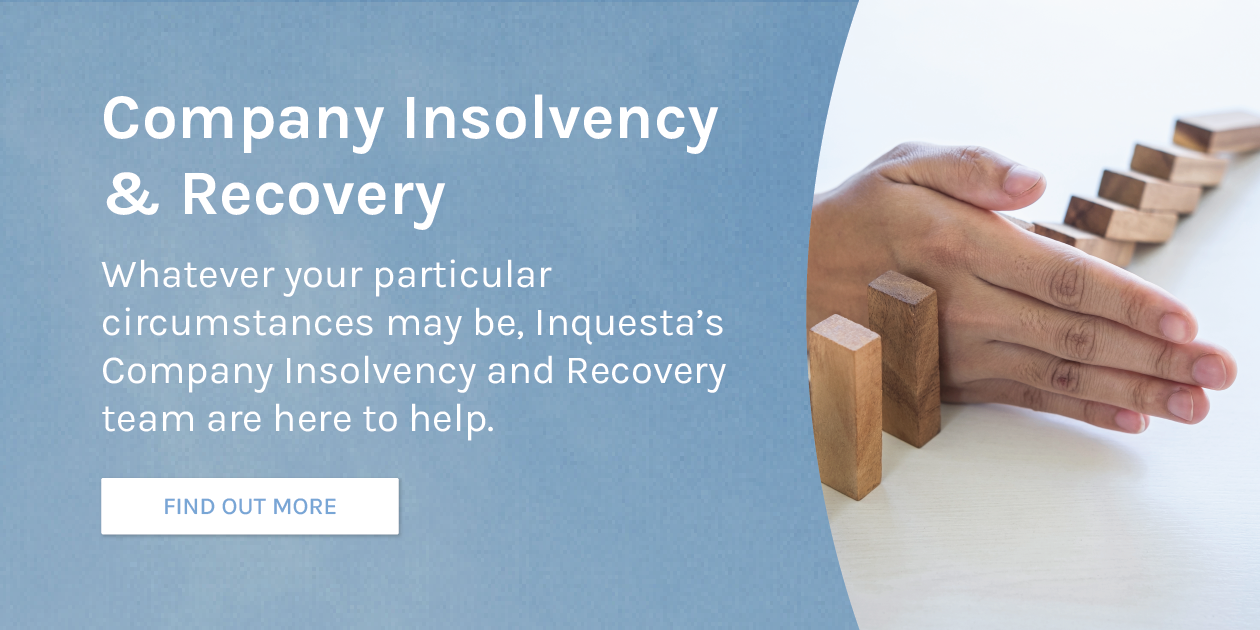The Basic Principles Of Insolvency Practitioner
The Basic Principles Of Insolvency Practitioner
Blog Article
Some Known Factual Statements About Insolvency Practitioner
Table of ContentsLittle Known Facts About Insolvency Practitioner.Everything about Insolvency PractitionerInsolvency Practitioner Fundamentals ExplainedThe Buzz on Insolvency PractitionerThings about Insolvency Practitioner
Whether you require to make use of a bankruptcy practitioner (IP) to liquidate your company depends on various factors. While involving an insolvency practitioner for all kinds of liquidation is not a lawful need, doing so can frequently improve the process and guarantee conformity with legal demands. Liquidating a business is an important choice that includes substantial effects.
It is a treatment used when a company does not have any type of financial institutions, or all of their creditors can be settled completely with legal interest. Understanding the different types of bankruptcy processes can help you establish the most effective strategy for your business's liquidation or other official insolvency treatments itself.
This is necessary in order to stick to lawful needs - Insolvency Practitioner. This is since IPs have the essential qualifications and experience to guarantee that the liquidation procedure is performed in accordance with all suitable legislations and laws. By engaging a licensed insolvency expert, you can have satisfaction recognizing that your business's liquidation procedure will be taken care of properly and in compliance with the pertinent lawful requirements
Not known Details About Insolvency Practitioner
The bankruptcy professional is selected as a liquidator and is in charge of taking care of the company and liquidator's financial debts exceptional obligations and possessions. This process involves marketing off the firm's possessions and dispersing the proceeds to financial institutions. Upon completion of the process, the firm is gotten rid of from the register at Business House.
Stopping working to do so can result in personal responsibility for the business or director for the lender's financial obligations. Volunteer liquidation, that includes Lenders' Voluntary Liquidation (CVL) and Members' Volunteer Liquidation (MVL), is started by the firm's supervisors and investors when they can no much longer pay their debts. In a CVL, the bankruptcy professional is designated as the liquidator, accountable for taking care of company financial debts and all firm possessions.

The Basic Principles Of Insolvency Practitioner
By evaluating the expertise and experience of potential bankruptcy experts, you can make sure that you pick an expert who possesses the essential certifications to handle your business's liquidation process properly. While bankruptcy practitioner-led liquidation is frequently the most appropriate course of activity for business facing bankruptcy, there are alternative techniques to take into consideration, such as striking off and partial liquidation.
It's vital to review all available alternatives before selecting the following finest service or course of action for your business. Striking off firms' signs up is a more uncomplicated and affordable means to shut dormant or small business with no financial debts or assets. To strike off a company, its name is gotten rid of from the Firms Home register by submitting form DS01.
Prior to going with striking off, it's important to consider the benefits and downsides of this strategy and take into consideration whether it's the appropriate selection for your service. Partial liquidation is an additional option to insolvency practitioner-led liquidation, where a firm liquidates certain properties and liabilities while continuing to operate with the remaining assets and liabilities.
An Insolvency Professional will certainly have the ability to suggest you of the most effective program of action to take and make sure that every little thing runs efficiently. Sadly, it is not feasible to liquidate a business without a liquidator. Designating an authorised bankruptcy specialist is required for the process of volunteer liquidation to begin.
Insolvency Practitioner for Dummies
It is feasible to shut and liquidate your company without using a liquidator, offered your firm is solvent and you satisfy the eligibility demands to dissolve or liquidate it. Nonetheless, if your business is bankrupt, you might be required to utilize a liquidator and begin formal bankruptcy this hyperlink treatments. Below are some other insightful write-ups pertaining to business liquidation in the UK:.
Being in a placement where you're unable to pay your business's financial institutions is incredibly demanding. In an effort to avoid increasing the degree of financial debt, numerous business attempt to bargain directly with their creditors and agree to a casual setup. If the debt is rather small and owed to one financial institution, and the financial institution is being participating, participating in an casual debt arrangement is possibly the very best solution, instead of browsing the internet for 'a bankruptcy expert near me'.
On the other hand, if there are multiple creditors and the level of financial obligation is large, lenders might not be so ready or participating. In order to avoid liquidation or insolvency, it is much better to employ an insolvency practitioner to create official propositions and negotiate with lenders in your place.
Insolvency Practitioner Fundamentals Explained
Whilst it is a way to manage financial obligation, there are considerable threats included with this kind of financial obligation arrangement - Insolvency Practitioner. If a creditor wants to become part of an informal setup (IA) where the borrower has agreed to make routine, if lower, repayments to pay back the financial obligation, it is very important to stick to the agreement

As a result, the lender is within their rights to back out Your Domain Name of the contract and petition the courts for your company to be sold off at any type of time. An official plan that has actually been proposed by an insolvency specialist on your behalf, and concurred by a creditor, offers a much more secure alternative.
Report this page